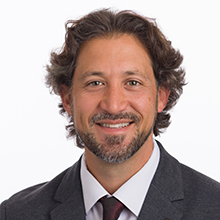
Three Core Areas for Success in HRM
The curriculum in the programs within the SMLR HRM Department focus on different levels of study – undergraduate, master's, and doctoral. Across these programs, we strive to advance students' cognitive skills and processes, their knowledge of theory and application, and develop their professional skills.
Cognitive Skills and Processes
The cognitive skills and process area reflects the goal for SMLR HRM programs to help students develop skills central to lifelong learning and participation in society and the workplace.
Communicate effectively at a level and in modes appropriate to an entry level professional.
- Communicate complex ideas effectively, in standard written English
- Analyze and synthesize information and ideas from multiple sources to generate new insights
- Produce quality research papers with proper convention of attribution/citation
- Produce high quality executive summaries
- Make an argument using contemporary and/or historical evidence
- Present ideas and arguments in a logical and effective way
Apply appropriate quantitative and qualitative methods for research workplace issues.
- Formulate, evaluate, and communicate conclusions and inferences from quantitative information
- Apply quantitative methods to analyze data for HR decision making including cost-benefit analyses, ROI, etc.
- Apply qualitative methods appropriately, alone and in combination with quantitative methods
Demonstrate an ability to collect, analyze and synthesize information to make logical and informed decisions impacting the workplace. Use evidence to evaluate hypotheses, theories and approaches to workplace issues.
- Employ current technologies to access information, to conduct research, and to communicate findings
- Analyze and synthesize information and ideas from multiple sources to generate new insights
- Assess and critique relevant evidence and research findings
- Access high-quality historical, qualitative, and quantitative evidence or research
- Use evidence-based analysis to appraise the validity of various hypotheses, theories, and approaches to workplace issues
Knowledge of Theory, Practice and Application
The knowledge of theory and application area reflects the goal for SMLR HRM undergraduate programs to ensure that students learn the key theoretical and foundation areas of study in their domains and realize opportunities to apply that knowledge to practice situations.
Demonstrate an understanding of relevant theories and apply them given the background context of a particular work situation.
- Demonstrate an understanding of the practical perspectives, theories and concepts in their field of study
- Evaluate and apply theories from social science disciplines to workplace issues
Evaluate the context of workplace issues, public policies, and management decisions.
- Analyze the degree to which forms of human difference shape a person’s experience of, and perspectives on work
- Analyze a contemporary global issue in their field from a multi-disciplinary perspective
- Analyze issues related to business strategies, organizational structures,and work systems
- Analyze issues related to the selection, motivation, and development of talent in a global context (HRM)
Demonstrate an understanding of how to apply knowledge necessary for effective work performance.
- Apply concepts and substantive institutional knowledge, to understanding contemporary developments related to work
- Understand the legal, regulatory and ethical issues related to their field
- Develop human resource management functional capabilities used to select, motivate, and develop workers
- Understand the internal and external alignment and measurement of human resource practices
Professional Development
Demonstrate an ability to interact with and influence others in a professional manner, and to effectively present ideas and recommendations.
- Develop effective presentation skills appropriate for different settings and audiences
- Develop career management skills to navigate one’s career
- Understand cultural differences and how to work in a multicultural environment
- Work productively in teams, in social networks, and on an individual basis
- Develop cultural agility competencies
- Demonstrate lifelong personal & professional development skills
|
Number |
Course Name |
Learning Categories |
|---|---|---|
|
301 |
Introduction to HRM |
V, VI |
|
311 |
Staffing |
II, VI |
|
312 |
Training and Development |
VI, VII |
|
313 |
Compensation |
II, VI |
|
575: 315 |
Employment Law |
I, V |
|
533: 315 |
Global HRM |
III, V, VII |
|
317 |
Career Management |
IV, VII |
| 318 | Benefits | I, II, V, VI |
|
575: 345 |
Organizational Work and Behavior |
IV, V |
| 360 | HRM & Finance | II, VI |
|
376 |
Corporate Governance |
I, V |
|
440 |
Statistics for HRM |
II, III, VI |
| 496/97 | Internship in HRM | I, II, III, IV, V, VI, VII |
Special Topics Courses |
||
|
321-330 |
Organizational Change |
IV, VI |
|
321-330 |
Internal Consulting |
I, VI, VII |
|
321-330 |
Teams |
IV, VI |
|
321-330 |
Leadership |
VI, VII |
|
321-330 |
Diversity |
IV, V |
|
321-330 |
Economics and Demographics of Labor Markets |
I, IV, V |
| 321-330 | Ethics | V |
| 321-330 | Future of Work | V, VI |
|
321-330 |
Social Media |
I, V, VI, VII |
|
321-330 |
Employee Ownership & Group Incentives |
I, V, VI |
|
321-330 |
HR & Health Administration |
V, VI |
|
321-330 |
Managing the 21st Century Workforce |
V, VI, VII |
| 321-330 | HRM in the Public Sector | V, VI |
Contact Us

Shuenn "Grace" Tien
Student Counselor
Email

Joy Montuoro
Student Counselor
Email

Ryan Greenbaum
Director
Email


